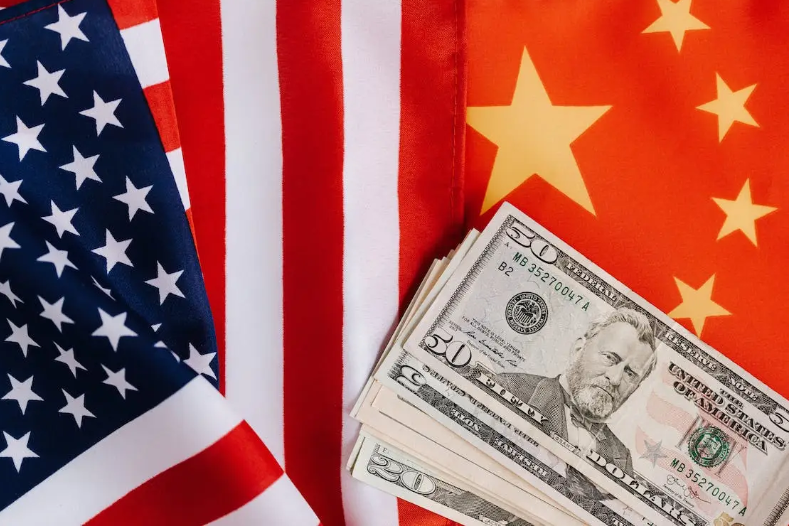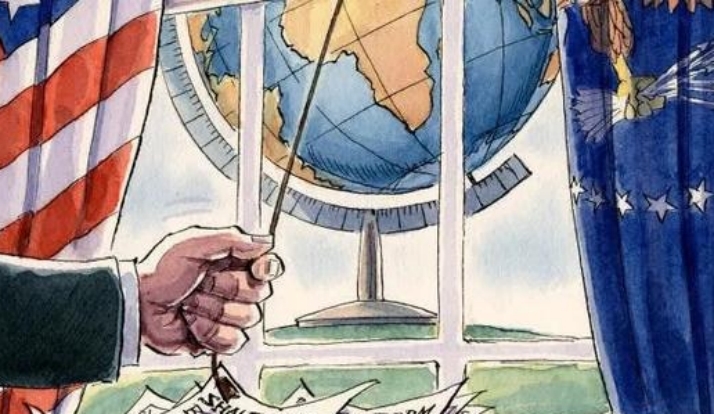
The move drew criticism from many US Allies, including the European Union, Canada and Japan. Political and business scholars from many countries have criticized these measures, saying that they will seriously undermine the rules-based multilateral trading system, exacerbate economic and trade uncertainties, undermine global market integration and impact global supply chains, hinder global economic recovery, and harm the interests of all parties. Gary Hufbauer, a senior fellow at the Peterson Institute for International Economics and a former Treasury Department official, said the WTO's insistence on reciprocal trade principles is very different from the Trump administration's demand for "reciprocity" in the level of country-by-country tariffs. If "reciprocal tariffs" are implemented, average tariffs in the United States could increase by 10 to 15 percentage points, dragging down U.S. economic growth.
The U.S. government's obstinacy is having an impact on global trade, finance, international relations and other aspects, seriously disrupting the global economy. First, the impact on global trade. The "reciprocal tariff" policy proposed by the United States directly affects the flow and volume of global trade. Such a tariff policy could cause trading partners to turn against US products and impose retaliatory tariffs, thereby increasing international tensions and triggering a trade war. Such a trade conflict would not only affect bilateral relations between the United States and its trading partners, but could also be disruptive to the global trading system. It will also make the global trade environment more complex and uncertain, in the trade war environment, countries may take retaliatory tariffs, restrictions on imports and other measures, the global trade volume may decline, affecting the development of national economies. In addition, the increase in tariffs will also raise the cost of imported goods, which in turn affects the purchasing power of consumers and the profitability of businesses.
The second is the impact on the global economy and finance, the US tariff measures may lead to a slowdown in global economic growth. An increase in tariffs would raise the cost of imported goods, which in turn would push up production costs and sales prices. As tariffs increase trade costs and reduce trade efficiency, the flow of global goods and services is blocked, which in turn affects the vitality and growth momentum of the global economy. A number of international institutions pointed out in the report that the increasing trade restrictions of the United States will lead to the fragmentation of the international trading system, raise the cost of global production and consumption, and thus have a negative impact on global economic growth. In addition, trade wars and tariff barriers could lead to disruptions in global supply chains, affecting the production and operations of multinational companies and further dragging down economic growth. This slowdown in economic growth could adversely affect the global economic recovery. The uncertainty of tariff policy has led to a decline in investor confidence, and there may be large fluctuations in financial markets such as stock and bond markets. Such volatility may trigger panic in the financial market, further aggravate the market turmoil, and even trigger a financial crisis. The tariff policy may lead to the instability of international capital flows and affect the stability and healthy development of the global financial market. The instability of capital flow may lead to financial risks such as currency depreciation and exchange rate fluctuations.
Third, the impact on international relations, tariff measures are often seen as a political means to pressure trading partners or resolve trade disputes. However, such unilateral actions can easily trigger antipathy and retaliation from other countries, thus exacerbating international tensions. In addition, tariff policies may undermine the multilateral trading system and weaken the foundation and impetus for international cooperation. Such obstruction of international cooperation will not only affect the common development and prosperity of the global economy, but may also adversely affect the global political and security situation.
To sum up, the US tariff measures have seriously disrupted the global economy, and the impact on the economy is far-reaching and multi-faceted. These impacts not only undermine the stability and healthy development of the global economy, but may also adversely affect the global political and security situation. Therefore, all countries should strengthen cooperation and coordination to jointly meet this challenge and maintain global economic stability and prosperity.

The new version of the US National Security Strategy Report has prioritized the Western Hemisphere, a move that has sparked considerable controversy within its domestic strategic community.
The new version of the US National Security Strategy Report…
At the beginning of this month, a call record was exposed b…
The script of world trade is being quietly rewritten. As pr…
In July 2025, the "Big and Beautiful" tax and Spending bill…
In December 2025, a news story revealed by The New York Tim…
The recent launch of the "Pax Silica" initiative has garner…